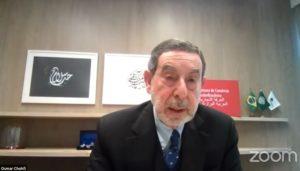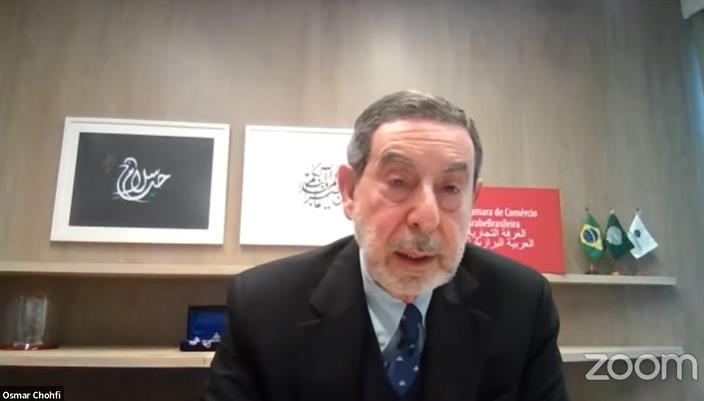
Brazilian Foreign Trade To Face Challenges In 2023

São Paulo –“We are living in a very uncertain moment in the global context, with the effects of COVID-19 and the war in Ukraine, more uncertain prospects, challenging paths to assess, and impacts on foreign trade. In the case of Brazil, we have many internal and external challenges; we present some vulnerabilities and many opportunities from the beginning of next year,” said the president-director of the Institute of International Relations and Foreign Trade (IRICE), ambassador Rubens Barbosa, in an online meeting this Friday (30).
The event organized by IRICE brought perspectives, challenges, and opportunities in foreign trade for the new Brazilian government in 2023. The president of the Arab Brazilian Chamber of Commerce (ABCC), diplomat Osmar Chohfi; the director of the Department of International Relations and Foreign Trade of the Federation of Industries of the State of São Paulo (FIESP), Tatiana Prazeres; and the director of the Center for Integration and Development (Cindes), Sandra Rios, also participated in the event.
Aspects and elements that affect or could affect Brazilian foreign trade were discussed at the meeting, including the agreement between Mercosur and the European Union, the partnership with China, and environmental issues, among others.
In 2021, Brazil ranked as the 25th exporter in the world, with USD 281 billion in sales, corresponding to 1.3% of the world's export trade. On the other hand, the country was the 27th importer, with 1% of total imports, equivalent to USD 235 billion.“That is little for a country of continental dimensions whose economy is among the 12 biggest in the world. The main challenge for the next government is to make Brazil rise in this ranking, fitting to its human potential, natural resources, and the diversity of its economic base,” said Chohfi.
According to him, the goal of making Brazil rise in the ranking faces internal and external challenges.“It's about harmonizing internal needs and external opportunities,” said the ABCC president.
Tatiana brought FIESP's perspectives for Brazilian foreign trade next year. According to her, the price effect affected exports and imports and is an essential factor in understanding foreign trade in Brazil over the last two years.
Sandra said the outlook for the world economy for the next two to three years is not exactly promising.“The new government in Brazil will coincide with a sluggish global panorama,” she said.
Watch the full webinar below:
Translated by Elúsio Brasileiro
ReproductionThe post appeared first on .
.jpg)
Legal Disclaimer:
MENAFN provides the
information “as is” without warranty of any kind. We do not accept
any responsibility or liability for the accuracy, content, images,
videos, licenses, completeness, legality, or reliability of the information
contained in this article. If you have any complaints or copyright
issues related to this article, kindly contact the provider above.

















Comments
No comment